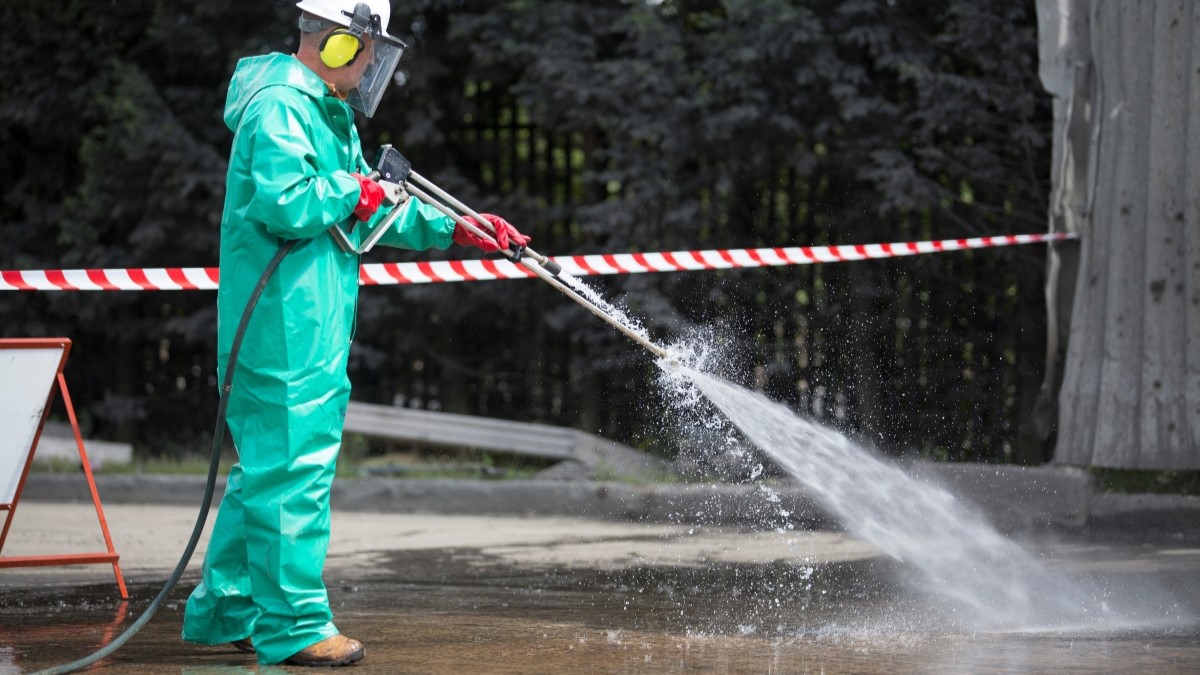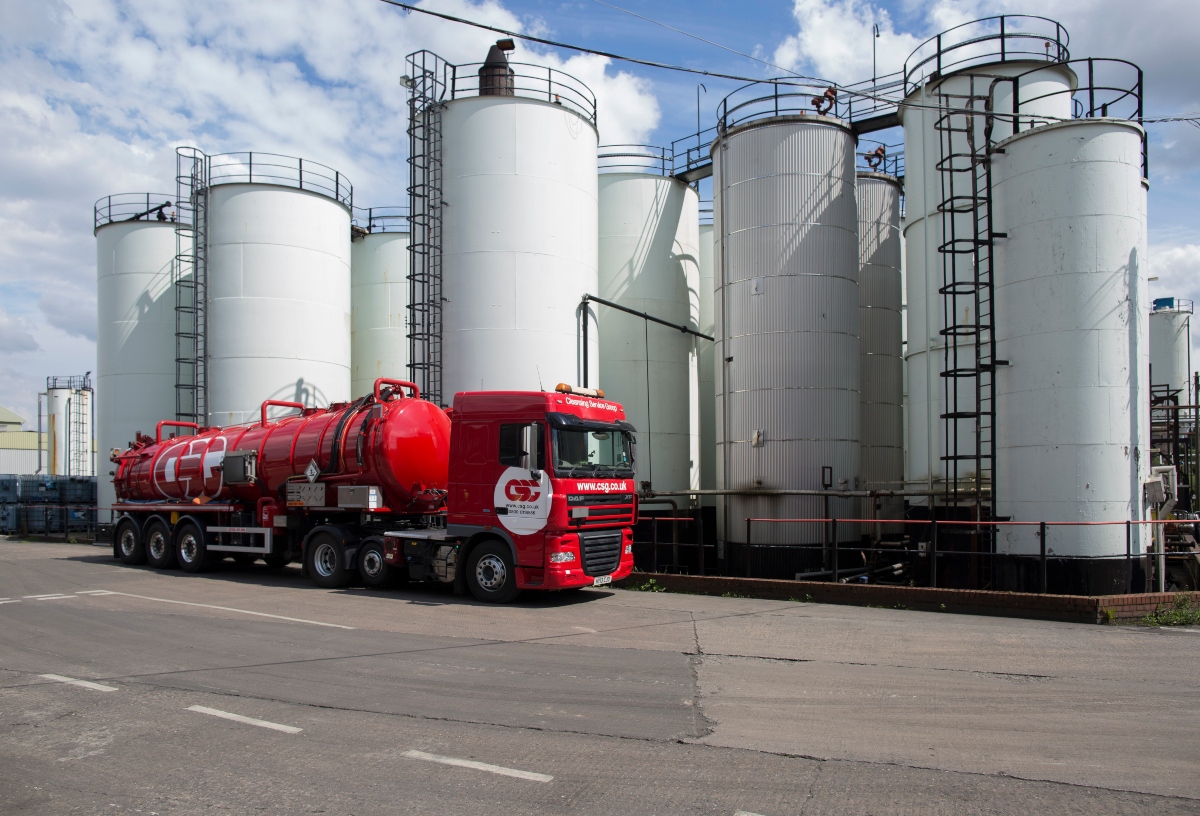Pollution and spills can be extremely expensive, disruptive and reputationally damaging – yet a huge proportion of businesses don’t have a sufficient emergency response protocol in place.
Mike Wilson, Group Business Development Manager at leading waste management company CSG, said he is alarmed by the lack of planning and preparation put in place to deal with spills.
CSG’s emergency response team is often called upon to clean up spillages but, by the time the team arrives on site, errors have been made which at best have failed to improve the problem, or at worst, have made the problem more severe.
CSG is experts in all manner of spills, including wastewater, chemicals and oils.
In the water industry, emergencies could include pollution pouring into the watercourse and chemical leaks at water treatment plans.
Mike, who has worked for CSG for 21 years, said: “Businesses and water companies just don’t think it will happen so they fail to prepare for spills.
“In my experience, roughly five per cent of businesses have a good spills plan in place and the rest are insufficiently prepared.
“If a spill does happen then a business faces the cost of the clean-up, which can run into the hundreds of thousands.
“But it’s more than that. There is a risk of harm to employees, insurance premiums go up, business is interrupted and the reputation of the organisation is tarnished. In the most extreme cases, failure to prevent pollution can result in five years in prison.
“The risk of failing to have a proper plan in place is just not worth it.”
There are numerous examples of expensive failures in the industry.
Earlier this year, Yorkshire Water was fined £1,600,750 for polluting a Bradford watercourse in a prosecution brought by the Environment Agency. In that case it was found its George Street detention tank in Bradford was full for up to eight months during 2018, leading to 25 unauthorised sewage spills into Bradford Beck.
An investigation revealed one or both of the two pumps that emptied the tank were at various times not working between August 2017 and September 2018. Appropriate maintenance of the pumps could of prevented the environmental disaster.
In 2016 a chemical leak at a Teesside water treatment plant resulted in four people being taken to hospital and, earlier this year, housebuilding giant Persimmon Homes was fined £433,331 for multiple pollution incidents on the River Gavenny in Monmouthshire, South Wales.
Mike said: “In the majority of cases, good preparation and adequate maintenance could prevent a spillage or a pollution incident or, at the very least, limit the damage caused.
“Recently we were called in when a delivery company suffered a spill of fuel from its boiler and allowed 10,000 litres of diesel to soak into the ground.
“We were on site for six months cleaning that up and it ran into a local river. It cost the company £400,000.
“Had the appropriate measures been in place then the spill might still have happened – but it would’ve been contained far more effectively.”
Mike said some of the mistakes he has seen businesses make are caused by the panic of the situation.
“People tend to go into a state of alarm when a spill occurs,” said Mike. “For example, a drum is dropped, chemicals are spilt onto the floor and no-one knows how best to respond.
“They have no way to contain it so use any items in their vicinity to try and stop the spread, from clothes to rags. I’ve even witnessed forklift trucks drive through the spill, increasing the spread.
“In many cases, they are making the situation worse rather than better.”
Mike said good training was key to being ready to respond in an appropriate manner, including knowing when to call for the emergency services.
“At the other end of the spectrum, a well-prepared business will have a sufficient spills protocol and a good plan in place,” said Mike.
“They will be signed up in advance with a specialist like CSG. We will have visited beforehand to assess the site, the materials and chemicals being used and the risks. This will enable our team to offer good advice on the phone straight away before they even arrive on site in the wake of a spill.
“They’ll have a spill kit with suitable absorbents and cones. Most importantly, staff will be trained in how to control the spill and how to react in a safe and effective manner. They must know the right person to report the incident to.
“A chemical leak at a water treatment plant, for example, is never good news. But, handled correctly, the reality it is often nothing more than a nuisance.
“However, if these leaks aren’t handled with the right care and leadership, or prepared for enough beforehand, a spill can be serious.”
Any materials used to contain or clean up the spill should be removed from the site and transported for safe disposal or further treatment
Mike said having a well-planned emergency response plan might help businesses insurance premiums. Certain awards, certifications and accreditations use emergency response plans as an assessment criteria.
CSG has a fleet of specialist vehicles ready to respond quickly to spills, both hazardous and non-hazardous. Vehicles carry on-board spill kits, absorbents and specialist equipment to contain and clean up the spill to prevent contamination of the environment.
Solids and organic materials can be removed from the wastewaters, allowing the business to remain in compliance with their discharge permit and continue production operations during the clean-up.
If river pollution has occurred, booms can also be installed to contain the spill to help prevent it from spreading further down the watercourse. Any contaminated vegetation can be effectively removed.
In the case of flooding, CSG will tanker the excess water away, quickly and efficiently. If road traffic collisions occur, CSG will be there to take care of any debris and clear the roads to keep traffic flowing. After the incident, CSG’s dedicated response teams provide a range of timely and cost-effective consultancy and site remediation services that put the customer and the environment first.
After a spill has been contained and removed from the premises, a post-spill investigation should be conducted. This is part of the due diligence to assess possible damages to the environment. It is a legal requirement to take action to restore any damages to the environment.
CSG offers a post-spills investigation carried out by experienced consultants. It includes necessary tests like soil sampling and site remediation. A report is provided with recommendations for removing residue contamination or pollution.
Mike concluded: “Working in partnership with our customers is central to the CSG ethos. We provide a flexible range of services, ongoing support and robust reporting to meet all environmental, financial and legal requirements.
“Full traceability of work completed is provided, including before and after photography, and a breakdown of tasks and costs.”




